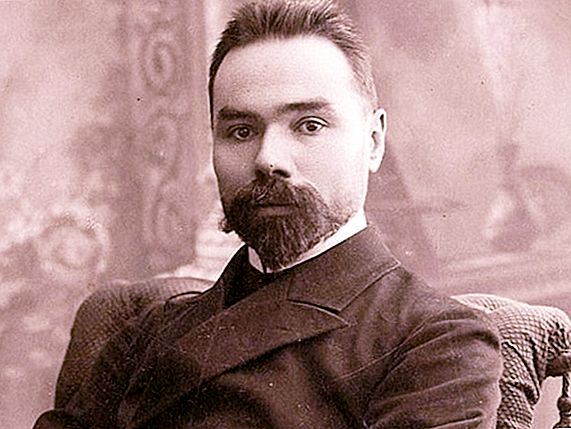REPUBLIC OF THE SOUTHERN CROSS (9)
By:
May 21, 2022

Valery Bryusov
HiLoBooks is pleased to serialize Valery Bryusov’s 1907 proto-sf story “The Republic of the Southern Cross” (“Respublika Iuzhnogo Kresta”) for HILOBROW’s readers.
ALL INSTALLMENTS: 1 | 2 | 3 | 4 | 5 | 6 | 7 | 8 | 9.
During July several attempts were made to reach Zvezdny by air. Several new airships and aeroplanes were received by the Republic. But for a long time all efforts to reach the city failed. At last, however, the aeronaut, Thomas Billy, succeeded in flying to the unhappy town. He picked up from the roof of the town two people in an extreme state of hunger and mental collapse. Looking through the ventilators Billy saw that the streets were plunged in absolute darkness; but he heard wild cries, and understood that there were still living human beings in the town. Billy, however, did not dare to let himself down into the town itself. Towards the end of August one line of the electric railway was put in order as far as the station Lissis, a hundred and five kilometres from the town. A detachment of well-armed men passed into the town, bearing food and medical first-aid, entering by the north-western gates. They, however, could not penetrate further than the first blocks of buildings, because of the dreadful atmosphere. They had to do their work step by step, clearing the bodies from the streets, disinfecting the air as they went. The only people whom they met were completely irresponsible. They resembled wild animals in their ferocity and had to be captured and held by force. About the middle of September train service with Zvezdny was once more established and trains went regularly.
At the time of writing the greater part of the town has already been cleared. Electric light and heating are once more in working order. The only part of the town which has not been dealt with is the American quarter, but it is thought that there are no living beings there. About ten thousand people have been saved, but the greater number are apparently incurable. Those who have to any degree recovered evince a strong disinclination to speak of the life they have gone through. What is more, their stories are full of contradiction and often not confirmed by documentary evidence. Various newspapers of the last days of July have been found. The latest to date, that of the 22nd of July, gives the news of the death of Horace Deville and the invitation of shelter in the Town Hall. There are, indeed, some other pages marked August, but the words printed thereon make it clear that the author (who was probably setting in type his own delirium) was quite irresponsible. The diary of Horace Deville was discovered, with its regular chronicle of events from the 28th of June to the 20th of July. The frenzies of the last days in the town are luridly witnessed by the things discovered in streets and houses. Mutilated bodies everywhere: the bodies of the starved, of the suffocated, of those murdered by the insane, and some even half-eaten. Bodies were found in the most unexpected places: in the tunnels of the Metropolitan railway, in sewers, in various sheds, in boilers. The demented had sought refuge from the surrounding terrors in all possible places. The interiors of most houses had been wrecked, and the booty which robbers had found it impossible to dispose of had been hidden in secret rooms and cellars.
It will certainly be several months before Zvezdny will become habitable once more. Now it is almost empty. The town, which could accommodate three million people, has but thirty thousand workmen, who are cleansing the streets and houses. A good number of the former inhabitants who had previously fled have returned, however, to seek the bodies of their relatives and to glean the remains of their lost fortunes. Several tourists, attracted by the amazing spectacle of the empty town, have also arrived. Two business men have opened hotels and are doing pretty well. A small café-chantant is to be opened shortly, the troupe for which has already been engaged.
The Northern-European Evening News has for its part sent out a new correspondent, Mr. Andrew Ewald, and hopes to obtain circumstantial news of all the fresh discoveries which may be made in the unfortunate capital of the Republic of the Southern Cross.
RADIUM AGE PROTO-SF: “Radium Age” is Josh Glenn’s name for the nascent sf genre’s c. 1900–1935 era, a period which saw the discovery of radioactivity, i.e., the revelation that matter itself is constantly in movement — a fitting metaphor for the first decades of the 20th century, during which old scientific, religious, political, and social certainties were shattered. More info here.
SERIALIZED BY HILOBOOKS: James Parker’s Cocky the Fox | Annalee Newitz’s “The Great Oxygen Race” | Matthew Battles’s “Imago” | & many more original and reissued novels and stories.
